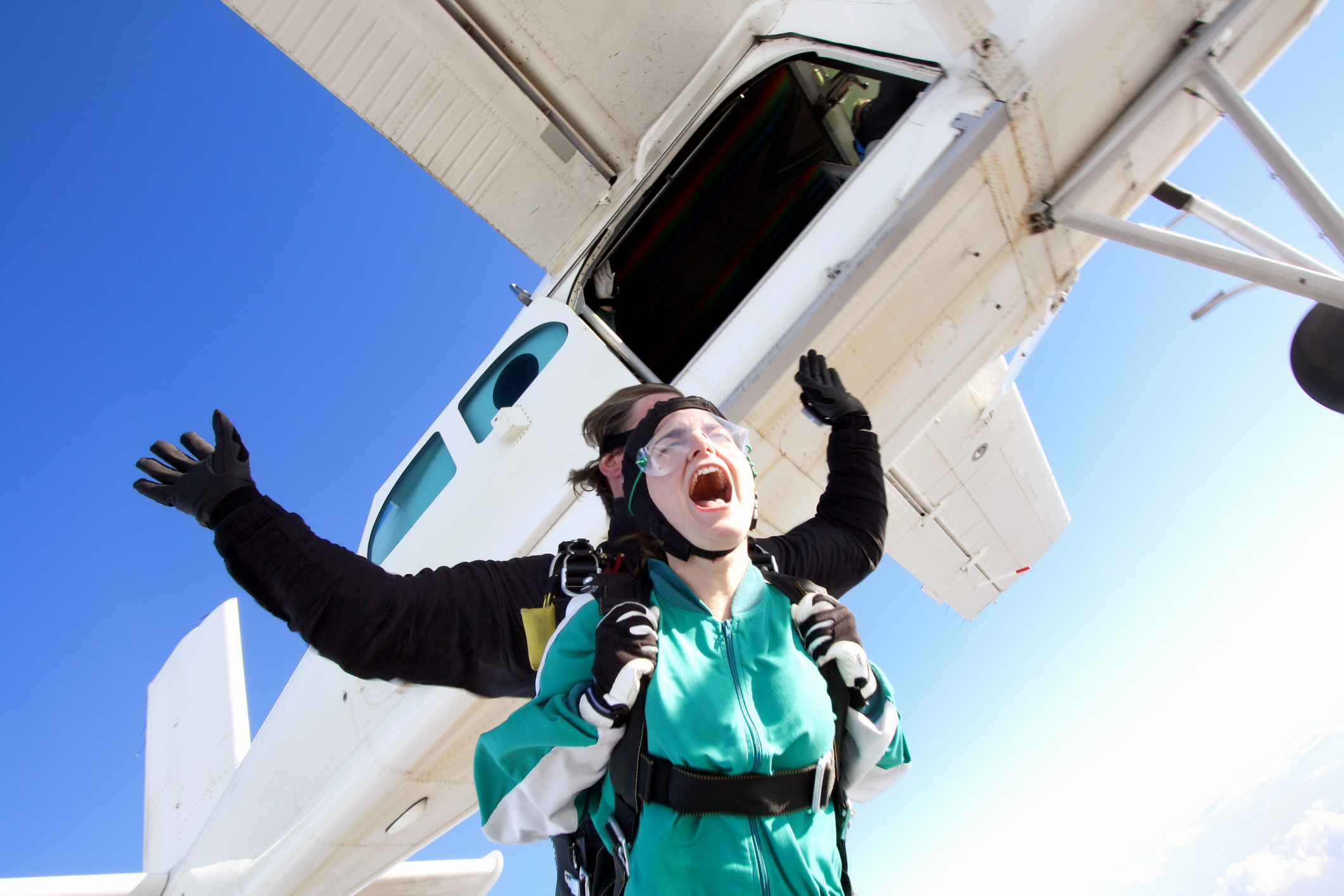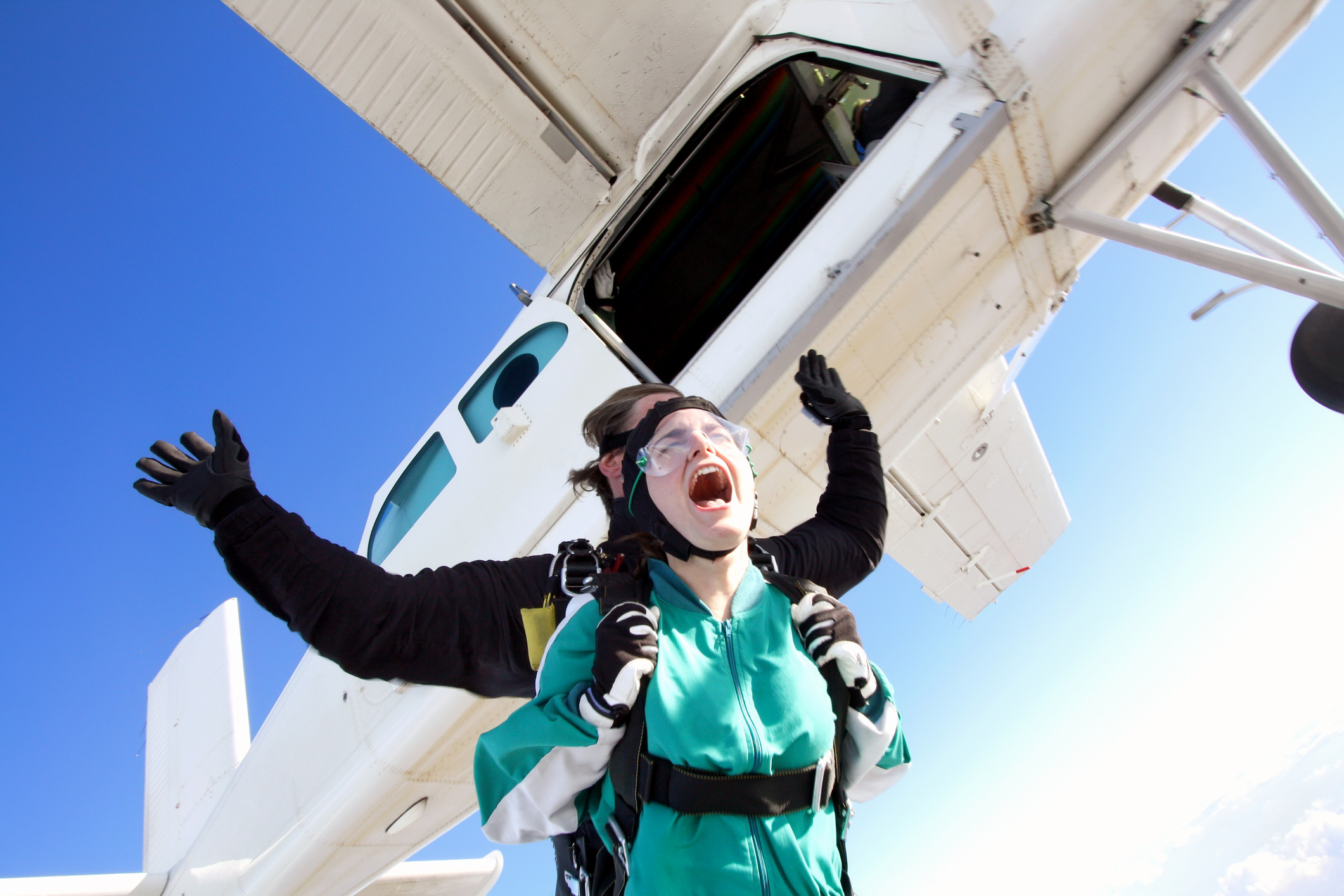
According to USA Parachuting Association (USPA), about half a million people jump out of airplanes for the first time each year. The average skydiver jumps from 13,000 feet, free falling for about a minute 110 miles per hour. Once the parachute opens, there is usually about five minutes to enjoy the views as you descend to Earth.
It’s a wild ride — one of the biggest adrenaline rushes you can legally find. But your body wasn’t designed to get out of airplanes; so the question arises: during this amazing adventure, what happens to the body?
Effects of skydiving on the brain
Research shows that when you skydive, your brain loses its perception of time. A 2007 study published in the journal Behavioral research and therapy found that heightened levels of fear leading up to and during the jump made skydivers think the experience was taking longer than it was. Those who were more excited and less fearful thought that the experience is much shorter. I guess time flies when you’re having fun.
The body also enters the flight or flight mode, which means the parasympathetic nervous system takes over the role of building up to jumping. A June 2013 study published in the journal Physiology and behavior found that both first-time and more experienced skydivers had similarly increased salivation cortisol levels. “These findings support previous research showing that skydiving causes an acute activation of cortisol,” the study authors wrote.
Additionally, an April 2019 study published in the journal Biological psychology found that testosterone levels in the body were also affected by skydiving. As cortisol levels increase, so do testosterone levels, especially in people who seek adventure.
What does it feel like to skydive?
Not only do skydivers, novice and experienced, rush before each jump, they can also feel the increasing pressure in their ears and sinuses. According to a study in the April 2014 issue of Sports Medicine Current Reportsin thrill-seeking sports such as skydiving and diving, the body may have difficulty adapting to large changes in pressure.
The rapid changes in altitude that occur during skydiving can cause “pressure on the middle ear and compression of the sinuses.” The change in pressure can cause pain, dizziness, headache and nausea, and in some rare cases can affect jumpers’ judgment.
Does jumping out of a plane cause stomach problems?
Also, skydiving can cause stomach problems in some cases. If your ears are popping and your balance is off, this can cause nausea. But most of this happens as a result of the plane, not as a result of jumping.
It’s important to note that when you jump out of a plane, you’re not likely to feel your stomach drop. The sudden drop sensation you might experience when jumping off a cliff or bungee jumping it doesn’t happen with skydiving because according to the USPA, you’re flying through the air so fast that the air acts almost like a cushion. You may also feel like you’ve lost your breath for a second due to adrenaline rush but jumping from these heights does not require additional oxygen.
How to prepare your body for skydiving
If you are prone to seasickness, make sure you have a healthy breakfast before your flight and that you are well hydrated. Don’t drink alcohol at all and don’t do anything that might upset your stomach. But for the most part, skydiving doesn’t cause motion sickness.
Skydiving takes its toll on the body, but in some ways we’re made for this kind of adventure. And well, life is short. Or maybe not. Last June, a 103-year-old woman became the world’s oldest person to jump from a plane. If she can do it, you too can be one of half a million people to make that 13,000-foot plunge.
read more
1. Parachute
2. Altitude sickness
3. Free fall
4. Safety gear
5. Adrenaline rush
Read more: How do roller coasters affect your body?

